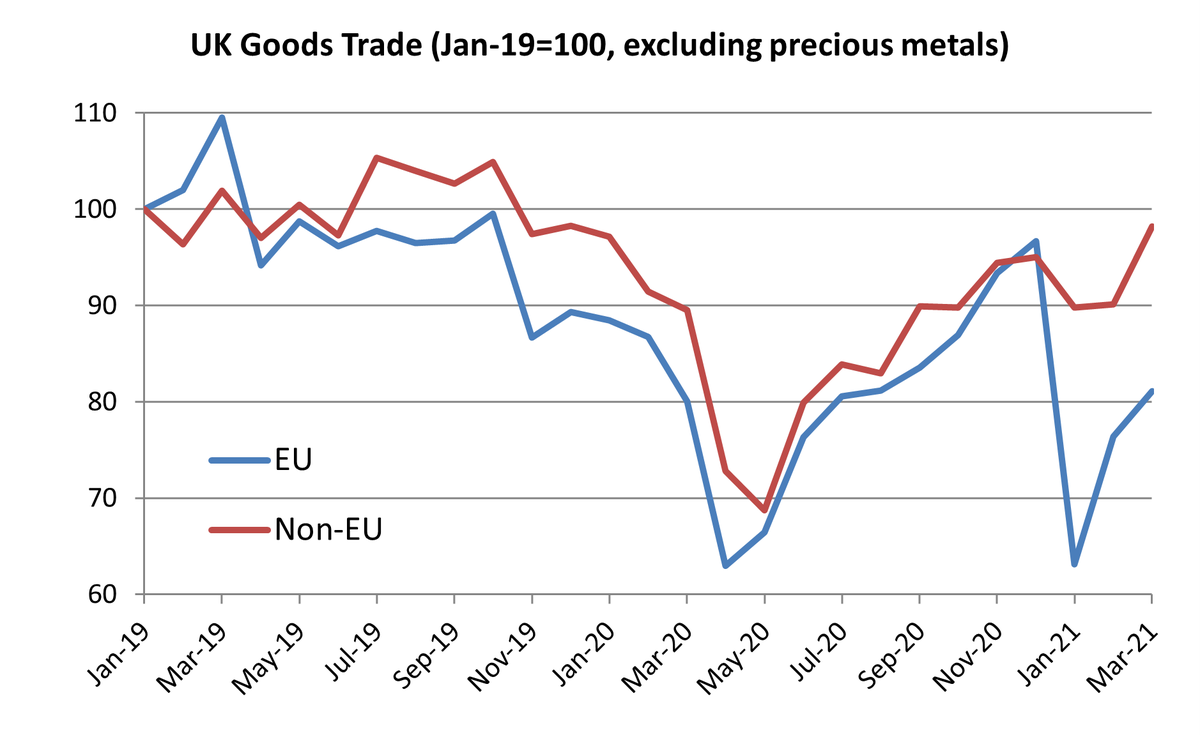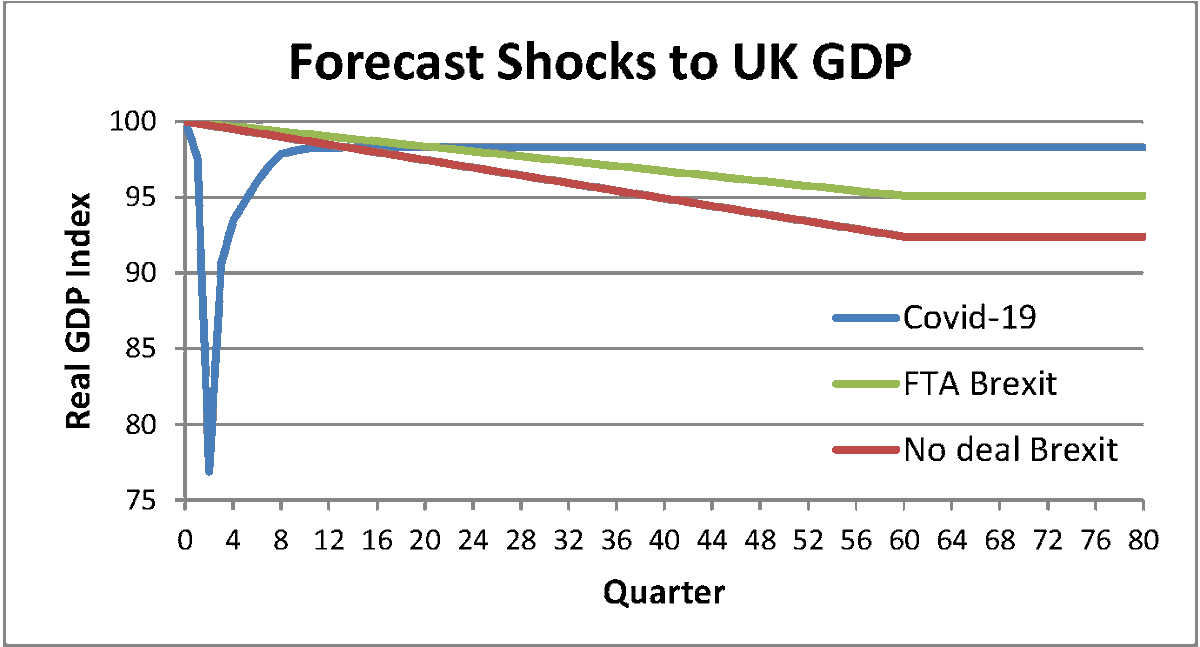
UK economy. Trade. Brexit.
Associate Professor @LSEEcon. Trade programme @CEP_LSE. Research Fellow @cepr_org.
3 subscribers
How to get URL link on X (Twitter) App




 We study the period between referendum in June 2016 & UK leaving EU in 2020
We study the period between referendum in June 2016 & UK leaving EU in 2020

 And, surprisingly, this fall has happened before UK introduces customs checks on EU imports
And, surprisingly, this fall has happened before UK introduces customs checks on EU imports

 Exports are lower than pre-TCA and pre-Covid, but the decline is similar for EU and non-EU exports
Exports are lower than pre-TCA and pre-Covid, but the decline is similar for EU and non-EU exports

 As Covid-19 has similar effects on EU & non-EU trade, comparing changes with EU vs non-EU gives a rough estimate of the Brexit effect.
As Covid-19 has similar effects on EU & non-EU trade, comparing changes with EU vs non-EU gives a rough estimate of the Brexit effect. 




https://twitter.com/jdportes/status/1234253114682880001

 Using techniques from computational linguistics, paper measures whether firms are positive or negative about Brexit (which the paper calls 'Brexit Sentiment') and how much risk firms face because of Brexit 2/
Using techniques from computational linguistics, paper measures whether firms are positive or negative about Brexit (which the paper calls 'Brexit Sentiment') and how much risk firms face because of Brexit 2/